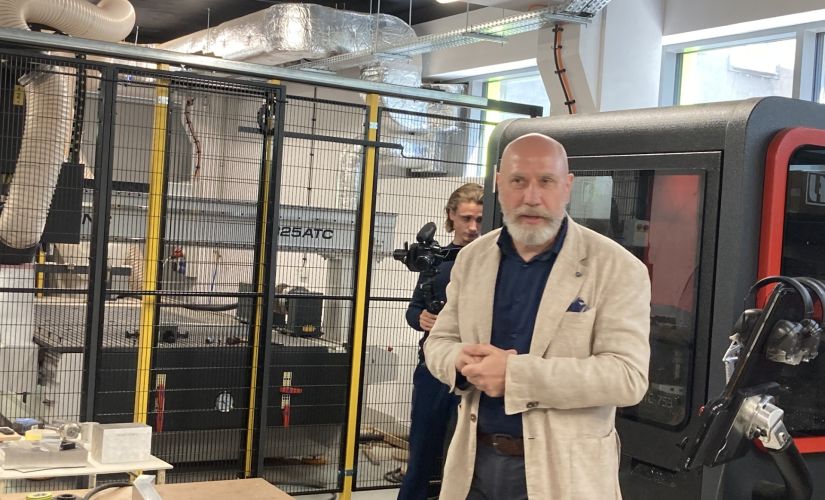Rector prof. Krzysztof Jóźwik speaking during the official opening of the facility, named Design-4-All, drew attention to the fact that
‘the center for universal design is available for use by the entire academic community of the university. Its functionalities can be useful regardless of the degree program. It is a perfect space for creating and explore interesting ideas, especially those that require rapid prototyping tools and techniques. Here, students can learn the basics of universal design methods suitable for people with different needs.’
The facility includes three laboratories, described during the opening by Grzegorz Granosik, university professor, who led the entire project.
FabLab, offers the equipment to carry out original projects: a 3D printer farm, laser plotter, thermoforming machine, and numerically controlled milling and turning machines.
LabVR has been operating since 2017 as the Voxel Research Lab. Virtual Reality reigns supreme in the lab equipped with devices that enable people to experience and/or overcome a range of states, e.g. being pregnant, having a disability, feeling frightened or experiencing... turbulence. The room features a shock-absorbing floor to ensure that anyone who falls while working in VR is safe.
LabASE is a laboratory for ergonomic analysis and simulation. It is equipped with a system to capture body movements, monitor physical activity and heart rate. The Disability and Aging Simulator is very useful in the design of products, workstations, and living and working spaces.
Apart from the laboratories, the Design-4-All facility offers a coworking room for students to work on their projects collaboratively and a seminar room.
The center also offers two training courses. As Grzegorz Granosik, university professor, explains,
‘having completed the first one, students can identify, analyze, and assess the organizational and technical barriers faced by users with different needs, and to come up with conceptual designs to address them. During the second training course, students will learn to design, test, and demonstrate a new technical or procedural design that promotes equal opportunity for people with special needs'.
Some of the opportunities for collaboration offered at the center include a new-user weekly open house, design guidance, prototyping, technical support, safety training, and technology training as well as technical demonstrations and InnoTech Navigators, a micro-conference combined with a panel discussion or workshop, with NGO, industry and business representation, on innovation and technology trends. The first InnoTech Navigator on RoboChallenge was held in February of this year and was attended by 90 students, followed by the second one, on drone technology, in April, with the participation of Robert Fintak, CEO of Terra Hexen and the Polish Chamber of Unmanned Systems.
The Center for Universal Design was founded in the framework of the Accessible Lodz University of Technology program, with the support of the Foundation of Lodz University of Technology, and funds from the Idea Box participatory budget.

